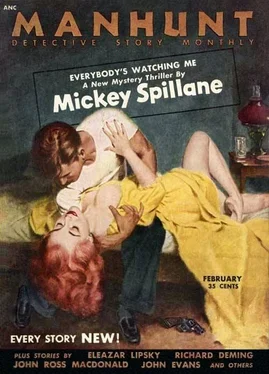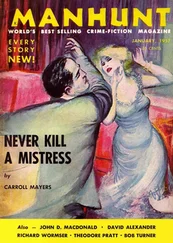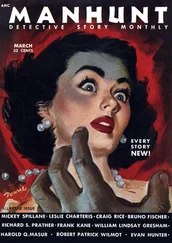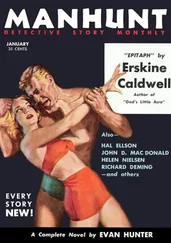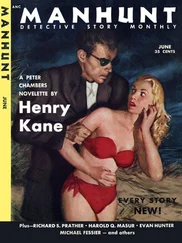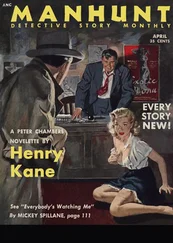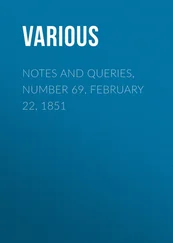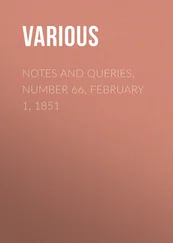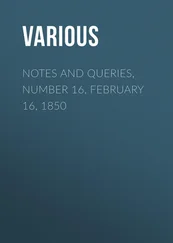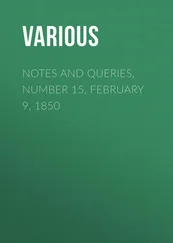Ричард Деминг - Manhunt. Volume 1, Number 2, February, 1953
Здесь есть возможность читать онлайн «Ричард Деминг - Manhunt. Volume 1, Number 2, February, 1953» весь текст электронной книги совершенно бесплатно (целиком полную версию без сокращений). В некоторых случаях можно слушать аудио, скачать через торрент в формате fb2 и присутствует краткое содержание. Город: New York, Год выпуска: 1953, Издательство: Flying Eagle Publications, Жанр: Детектив, на английском языке. Описание произведения, (предисловие) а так же отзывы посетителей доступны на портале библиотеки ЛибКат.
- Название:Manhunt. Volume 1, Number 2, February, 1953
- Автор:
- Издательство:Flying Eagle Publications
- Жанр:
- Год:1953
- Город:New York
- ISBN:нет данных
- Рейтинг книги:4 / 5. Голосов: 1
-
Избранное:Добавить в избранное
- Отзывы:
-
Ваша оценка:
- 80
- 1
- 2
- 3
- 4
- 5
Manhunt. Volume 1, Number 2, February, 1953: краткое содержание, описание и аннотация
Предлагаем к чтению аннотацию, описание, краткое содержание или предисловие (зависит от того, что написал сам автор книги «Manhunt. Volume 1, Number 2, February, 1953»). Если вы не нашли необходимую информацию о книге — напишите в комментариях, мы постараемся отыскать её.
Manhunt. Volume 1, Number 2, February, 1953 — читать онлайн бесплатно полную книгу (весь текст) целиком
Ниже представлен текст книги, разбитый по страницам. Система сохранения места последней прочитанной страницы, позволяет с удобством читать онлайн бесплатно книгу «Manhunt. Volume 1, Number 2, February, 1953», без необходимости каждый раз заново искать на чём Вы остановились. Поставьте закладку, и сможете в любой момент перейти на страницу, на которой закончили чтение.
Интервал:
Закладка:
“Cartright? Barrow?” Wiley asked.
“The two men sitting outside, sir.”
Wiley made a note and Goudy added, “I almost went under myself, but I kept thinking how it would be to face up to Mrs. Porter and Kitty if anything happened to the boy and I stuck it.”
“Were you in the War?”
“I made three runs to Murmansk, sir.” Goudy rubbed his hands and lapsed into staring.
Wiley could see the pictures in Goudy’s mind — the flaming tower of spume, the crash of the deluge, the shock of icy seas, the screams of men, the rumble of the sinking vessel with its spine cracked, death in the gray North Atlantic. He opened the door to the waiting room. “Which is which?”
Goudy turned. “That’s Cartright, the other’s Johnny Barrow.”
The two dozing men looked up expectantly. They were without overcoats and they shivered. Cartright’s spectacles gave a mild cast to his eyes. Barrow’s hairy face with its lantern jaw made a picture of respectability. Wiley closed the door. “You were lucky the War was over,” he said drily.
Goudy stammered, “I thought of that. With any Nazi subs around, the Norskies would have passed us by. I saw that happen once. As it was, they found us praying and crying and balmy. The next thing, we were in a rest home here in New York. The company was quite good to us. I asked them not to notify Mrs. Porter that the ship had sunk.”
Wiley brought him back. “What about last night?”
“Well, we were out for a bit of fun. That’s not easy for merchant seamen, sir, since we draw our pay in pounds mostly. But we were to ship out today for home and we did our best. We got wind of a little Hallowe’en party and we went there, but it was just for kids, and we left. Then we saw a film and walked around Times Square. We passed up a few prosties who tried to talk to us. We didn’t want that sort of thing. The kid was red in the face, blushing you know, and besides Barrow and Cartright are married men, and me engaged. We walked all over town and when it began to rain, we were outside this nightclub. We were hungry, and we went in.”
“What time was this?”
“About two.” Goudy started another cigarette. “It was a nice quiet place. We went down and there were tables. A man was playing the piano, something bouncey, and a girl was singing Enjoy Yourself. She looked full of fun. There were only two couples about—”
“What about Figueroa?”
“He was at a table near the door drinking heavily.”
“Was there trouble then?”
“The girl was singing and that was all. We took a booth and then this man Blasco—”
“Blasco?”
Ricca gave the answer. “He’s the owner. James Blasco, 847 Arlington Street, Long Island City. We’re out looking for him now.”
Goudy waited while Wiley made a note. “The owner, Blasco, came over smiling, a friendly looking man, nicely dressed. He was wearing a dinner jacket. I said, ‘We’d like a pint of ale each and some sandwiches.’ He laughed and said, ‘You sound English! I like the English — a great race of people! My sister married an Englishman. They keep a flowershop in London.’ We talked a bit about London, and then he had the kitchen do up some lamb chops for us. They came in sizzling and rare, proper good stuff, with little paper flowers for holding. We offered to pay, but it was his treat, he knew we were short dollars. And then suddenly he looked up and said something in Spanish and went off. He seemed disturbed suddenly.”
Goudy’s mind was on the cafe with its few customers, garish and cheap, but looking first class to his eyes. He shivered and clasped his hands between his thighs. “The girl had stopped singing and was at Figueroa’s table. I said, ‘Beauty and the Beast’ and we laughed.”
“He means the girl outside,” Ricca said. “Jenny, the good looker.”
“Suppose we come down to the trouble,” Wiley suggested.
“That came a little later, sir. We heard loud voices and we all turned. Figueroa was talking fast to the girl in Spanish. I thought he was drunk. Then he was standing up screaming at the owner.”
“Where were all these people located?”
“Blasco, the owner, was behind the bar. Figueroa had thrown his table aside. His face was red as blood. He was sweating and dancing about, quite excited. The veins were sticking out in his neck. The girl was scolding him. He threw a chair across the bar and smashed the big mirror.”
“What made him do that?”
“I don’t know, sir.”
“Go on.”
“I said, ‘I expect Mr. Blasco needs help!’ Figueroa was tearing his hair and shaking his fist, a big one, the biggest I ever saw. I went to him and said, ‘Now then, now then, we can’t have this!’ The others were behind me. I remember thinking I sounded like a silly London bobby in an American film. The girl tried to get in the way. She kept saying, ‘Keep out of this, you. Let them alone.’ And a lot of other things, not all of them nice.”
The witness paused, then went on. “We knew what to do, of course. Cartright and Barrow took him from the sides, an arm each, and I hit him twice. I’m a fair boxer, but his face was slippery with sweat and I couldn’t connect. Then the owner came up with a heavy stick. It was a hell of a row. We broke a chair and some glasses, Barrow sprained a thumb, and I got this.” Goudy solemnly showed the mark of large teeth matrixed in the flesh of his hand. “The girl kept pulling at us, shrieking in Spanish. We were fair winded when the owner got in a clear whack. Figueroa started to moan and roll his eyes. We got out into the street and the girl ran after. Then the owner bolted the door and we stood about to catch our wind.”
“Tell me one thing, Alex.” Ricca scratched his face dubiously. “What possible reason made you men all get into the fray?”
“What else could we do, sir?” Corbin said drily.
“Mr. Blasco, the owner of the pub, needed help. This fellow Figueroa was quite out of hand.” Goudy was puzzled.
“Ah!” Ricca said. “That explains it.”
“Did the owner of the pub explain all this?” Wiley asked.
“No,” Goudy said thoughtfully. “Blasco just looked sick at the mess and began to get the place cleaned up. He offered us drinks for having helped out but we had enough. Then suddenly we heard Figueroa shouting outside, and all at once his fist smashed through the glass door — smashed right through and hung there, bleeding. I pulled the door open and shouted, ‘Hoy, you there! Clear off!’ Then he ran off and I lost him in the drizzle. I thought to call the police but Blasco said, ‘No, I know that man. A bad customer but he won’t come back. I’ll put up the shutters now.’ ”
Goudy bit a heavy underlip and concluded. “Meanwhile, the kid gave the girl his jacket against the rain and he walked her down the street, talking. I didn’t like it but he came back in ten minutes. He told me he had taken the girl to her flat down a bit. His shirt was wet.”
Wiley put a number of questions to establish the details and Goudy went on. “We left and we split up to scout out a taxi. Barrow and Cartright crossed the street and walked the north side. The kid and me walked the south side. I scolded the kid about the girl but he told me he’d had a nice talk with her and he didn’t mind the wet. It was dark and we almost fell over him again.”
“Who was that?”
“Figueroa, sir. He’d come back for more. The girl was with him, carrying a heavy stick. We stood still and I said as quiet as I could, ‘Eddie, don’t move — the man has a knife.’
“The kid said, ‘Don’t worry, Alex. It’s all right.’
“The man said something in Spanish and held up his hand. I looked for Barrow and Cartright. They were off a distance looking for a taxi. The girl shook the stick and said, ‘Keep away from us, keep away.’ ”
Читать дальшеИнтервал:
Закладка:
Похожие книги на «Manhunt. Volume 1, Number 2, February, 1953»
Представляем Вашему вниманию похожие книги на «Manhunt. Volume 1, Number 2, February, 1953» списком для выбора. Мы отобрали схожую по названию и смыслу литературу в надежде предоставить читателям больше вариантов отыскать новые, интересные, ещё непрочитанные произведения.
Обсуждение, отзывы о книге «Manhunt. Volume 1, Number 2, February, 1953» и просто собственные мнения читателей. Оставьте ваши комментарии, напишите, что Вы думаете о произведении, его смысле или главных героях. Укажите что конкретно понравилось, а что нет, и почему Вы так считаете.
